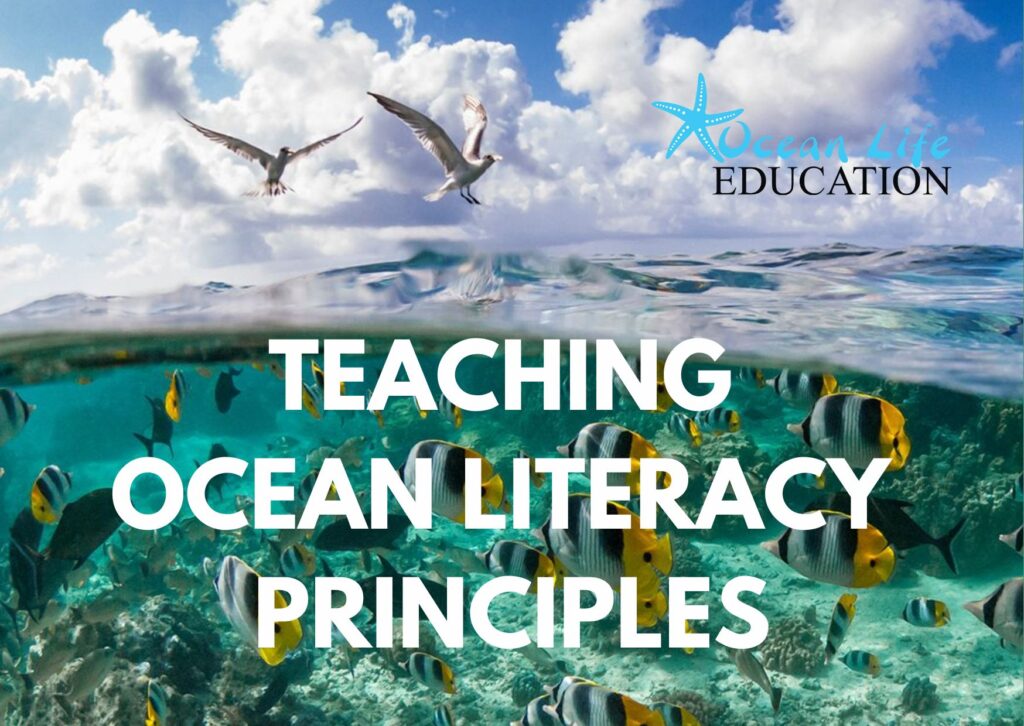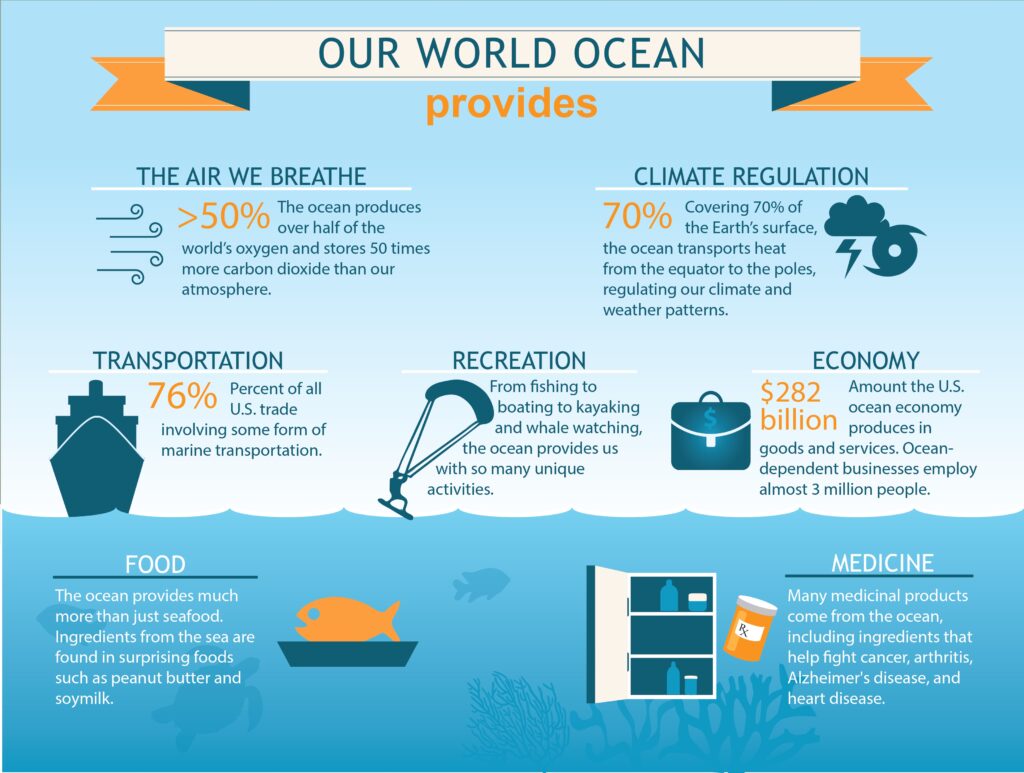
So, what’s all this about? What is Ocean Literacy? Ocean literacy is an understanding of the ocean’s influence on you – and the influence that you have on the ocean.
When we understand the ocean we can begin to comprehend how its works, giving us the information we need to take measures to protect it. Education is at the heart of ocean literacy and this is where we as educators play a crucial role in inspiring people young and old to want to take action and make a difference, transforming ocean knowledge into action. Here’s our guide to teaching Ocean Literacy at schools…
Who Developed the Ocean Literacy Principles?
The Ocean Literacy Principles were developed in 2004 through an international community-wide consultation, with agreement with hundreds of scientists, educators and policy makers. The original purpose of the campaign was to address the lack of ocean related content in schools in the US.
The fundamental aim of the Ocean Literacy Principles is that every human being should understand basic principles about the ocean by the time they graduate high school, thus creating an ‘ocean-literate’ society.
What is the Goal of the Ocean Literacy Principles?
UNESCO has set the following goal for the 7 Ocean Literacy Principles as:
“Ocean Literacy is included in curriculum frameworks of all 193 UNESCO Member States by 2025”.
What are The Ocean Literacy Principles?
The Ocean Literacy Principles are:
- The Earth has one big ocean with many features
- The ocean and life in the ocean shape the features of Earth
- The ocean is a major influence on weather and climate
- The ocean made the Earth habitable
- The ocean supports a great diversity of life and ecosystems
- The ocean and humans are inextricably interconnected
- The ocean is largely unexplored
What Does Being Ocean Literate Mean?
Being Ocean Literate Means:
- Understanding the essential principles and fundamental concepts about the ocean
- Communicating about the ocean in a meaningful way
- Being able to make informed and responsible decisions regarding the ocean and its resources
Are Many Australians Ocean Literate?
Studies show many Australians are very concerned about the ocean, with ocean plastic being the biggest concern voiced, then overfishing and other human impacts. So a lot of good work is already being done to spread the message that we need to act now to preserve the ocean for the future. Many Australians are ocean literate but a lot more still has to be done as the ocean needs our help.
Teaching Ocean Literacy in Australia
The basic principles of ocean literacy do not fall within traditional science disciplines, they instead focus on integrated science. This is because of the interdisciplinary nature of ocean sciences.
As teachers, it is our responsibility to educate children (and adults) about the ocean in a meaningful way. This can be done under the standard school curriculum themes. Our free primary resources can help you get started, or why not book in an incursion so one of our expert marine educators can teach the children about the ocean using interaction with our live marine animals. Here are some great resources to assist with planning.
Ocean Life Education Programs & Resources
Ocean Literacy resources – Australia focused
UNESCO – Ocean Literacy Teachers Area
Marine Stewardship Council of Australia
World Ocean Day – Plan Your Event
Why is the Health of the Ocean So Important?
The ocean covers most of our planet, it regulates our climate and provides the air we breathe. It also feeds us, provides jobs and livelihoods and is a tool for economic development, as well as being fun to play in! We humans need a healthy ocean in order to survive. So, the health of the ocean is critically important to us.
Click image to download PDF.
Read our blog – 10 reasons why we depend on our ocean
Further resources
Ocean and Climate Literacy – Essential principles and fundamental concepts



